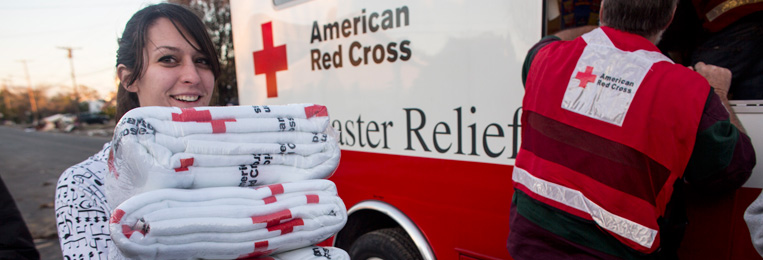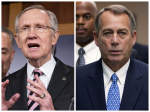Government shutdown tremors extended beyond the capital area in a new way this week after the biggest annual federal charity drive opened to empty offices, closed doors and nervous non-profit, non-governmental organizations.
Videos by Rare
The Combined Federal Campaign is the largest workplace charitable contribution campaign worldwide, generating an average of $275 million annually and $7 billion directly from public employees over the last five decades, all shared between thousands of NGOs and non-profits.
Running throughout the last few months of every year, the 2013 campaign began Tuesday and runs through Dec. 15 — a fundraising window shortened for every day government offices remain closed amid the shutdown.
Only two weeks into the shutdown, the organizations responsible for running the campaign and relying on its contributions to fund their charitable activities year-round have already cancelled dozens of events to solicit donations from public employees at federal offices.
“We’re possible collateral damage of the congressional budget fight,” non-profit EarthShare President Kalman Stein said in The Chronicle of Philanthropy. EarthShare runs the largest CFC campaign in the National Capital Area, which brought in $62 million last year — almost a quarter of the total $258 million raised in 2012.
“There’s no doubt the shutdown takes away from momentum. We can’t do anything with furloughed employees and agencies that have shut down. It’s hard to make a prediction because we don’t know how long this shutdown will go on,” Stein said.
Those that remain open, like the Edwards Air Force Base campaign in California with a goal of $375,000 this fall, have scaled back their expectations.
“Although last year’s goal was $403,000, this year’s monetary goal was lowered to account for the worries people have due to furlough and a government shutdown,” 412th Medical Support Squadron chief of pharmacy services and CFC installation representative Capt. Ronald Elazegui said.
The funding provided by CFC is unrestricted — meaning it does not have to go directly to service programs, and organizations can use it to pay for essential operating expenses like basic utilities and insurance. The CFC is the largest source of unrestricted funds for organizations nationwide.
Among the nation’s largest NGOs receiving funding from the CFC are non-profits like the American Red Cross and United Way, with some launching campaigns this week calling on Congress to end the shutdown.
“Already 800,000 public servants are at home without pay. Twenty-three Head Start programs did not receive their new grant on Oct. 1 because new grant funds cannot be processed during a shutdown,” United Way Worldwide Director of Policy and Advocacy Lindsay Torrico said.
“The longer the shutdown continues, the more people and communities’ economic security will be damaged,” Torrico said.
Programs like the Supplemental Nutrition Assistance Program (SNAP), Women, Infants and Children (WIC) and senior meal delivery services will start to see cuts and funding stops by the end of the week. Local businesses across several states are already turning away the subsidized vouchers for fear the government will not reimburse them.
United Way leaders across the country gathered with United Way of the National Capital Area and the Non-profit Roundtable of Greater Washington on Wednesday to participate in the Non-profit CEO/Board Summit on shared leadership. That same day, a rally to petition an end to the government shutdown and a return of vital operational funding to the city of Washington, D.C. took place on Capitol Hill.
“While they were gracious to give us a good deal of time, we all knew what was on their minds,” United Way President Rosie Allen-Herring said of the Wednesday meeting in a phone interview with Rare.
“We believe without taking any political side (that the shutdown should end) because of the impact this is having on communities literally across the country,” Allen-Herring said. “Those that can least afford it are going to be impacted the most.”
United Way receives approximately 43 percent of its funding from CFC contributions — roughly $13.7 million out of $32 million annually.
“The Combined Federal Campaign is very critical to us at the United Way Capital Area, and is something we’ve been most proud of in the legacy of our institution. We can see this will have an impact, but we don’t know how much, and we don’t want to surmise,” Allen-Herring said.
Though the prospect of extending the CFC deadline was raised among campaign managers and organizations, it has yet to be answered — CFC is run out of the U.S. Office of Personnel Management, which is temporarily closed due to the government shutdown.
Giuseppe Macri is a national political correspondent for Rare. Follow Giuseppe on Twitter @GDMacri.
[protected-iframe id=”4b5849a0f4c6d0632f2e0bfd5357d09a-46934866-46761209″ info=”http://embed.newsinc.com/Single/iframe.html?WID=2&VID=25242292&freewheel=91379&sitesection=rare&height=320&width=425″ width=”425″ height=”320″ scrolling=”no”]
Related articles
- States Eliminating Aid for Poor as Shutdown Forces Cuts (bloomberg.com)
- Local coverage tracks shutdown’s impact (cjr.org)
- How to look at NGO mergers (devex.com)



